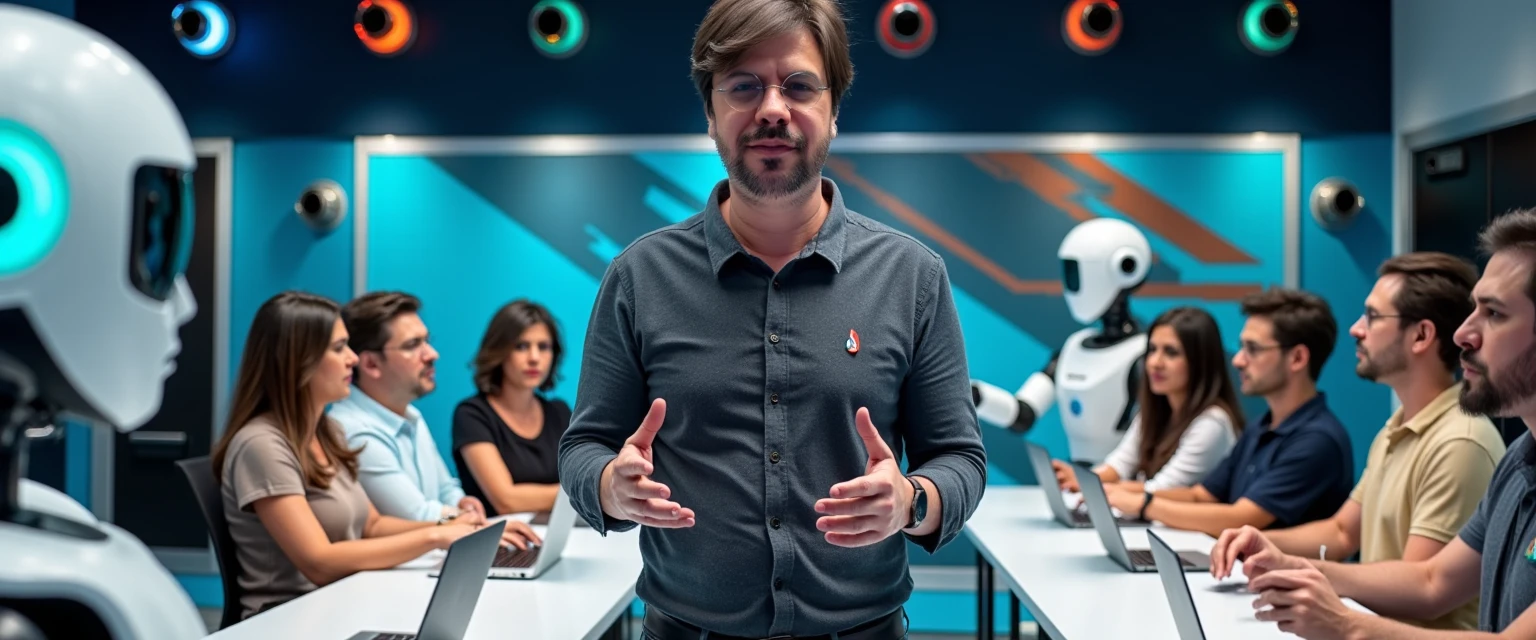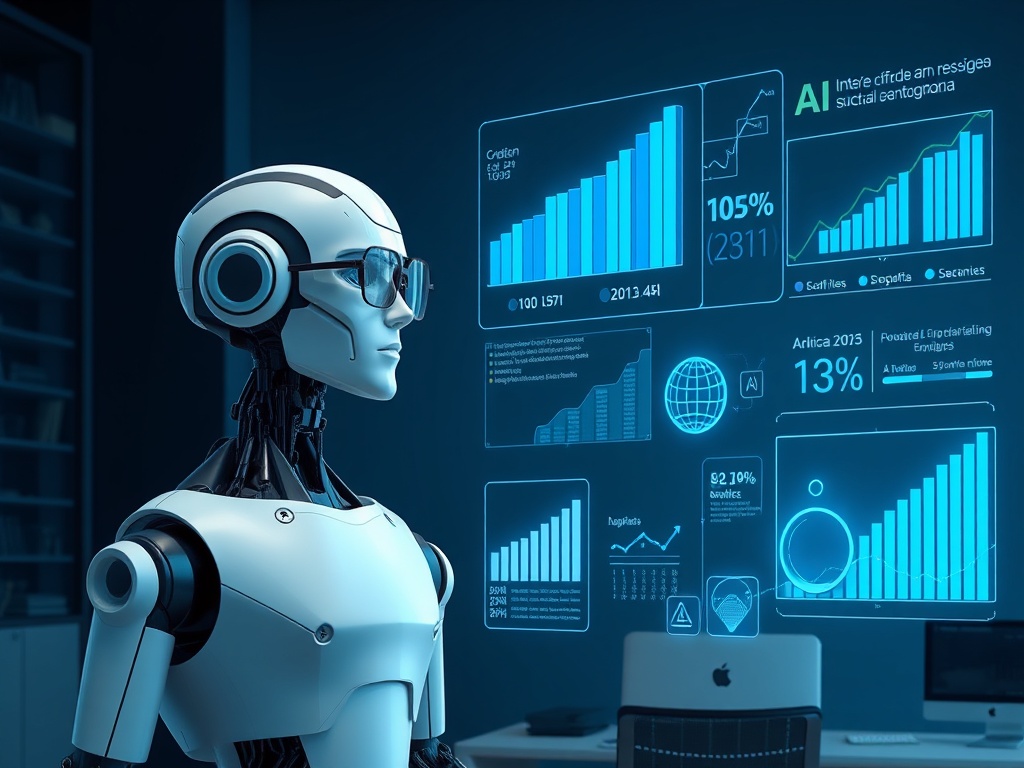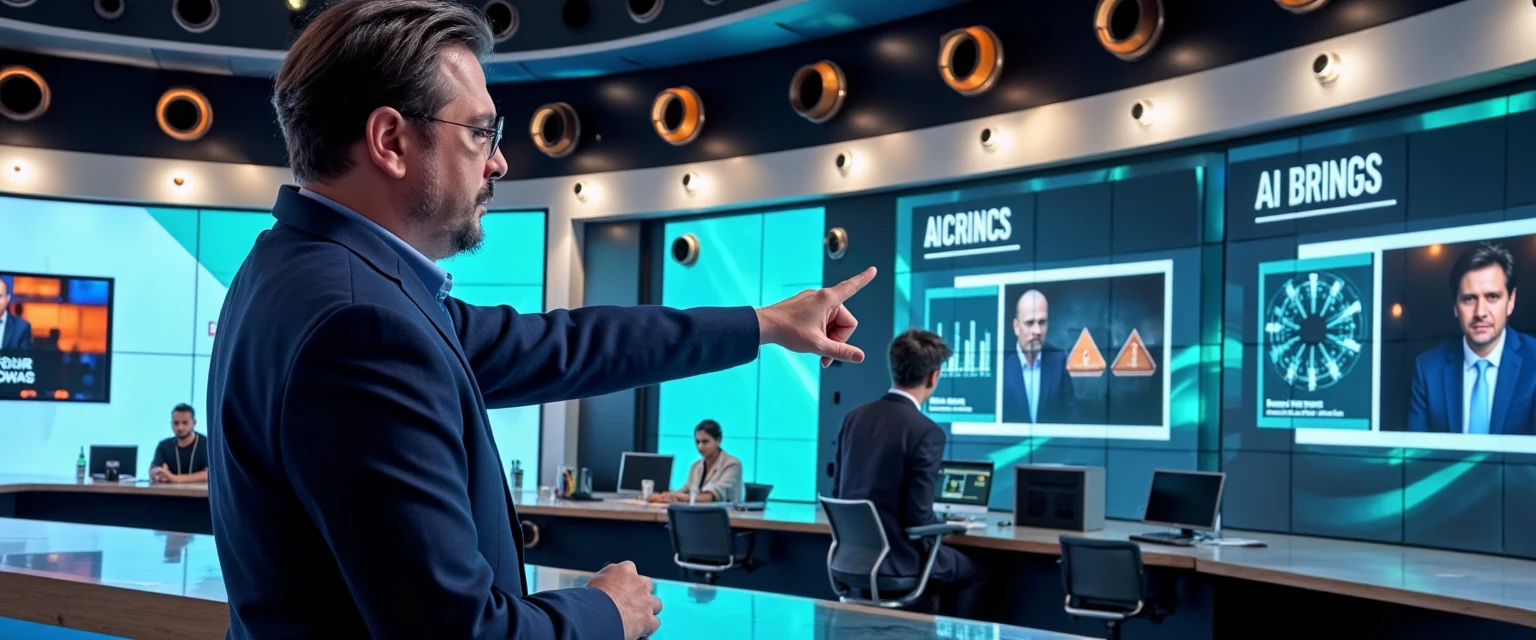The Threshold of Indistinguishability: GPT-4.5 Outsmarts Humans in the Turing Test
April 27, 2025 | by Matos AI

AI has just surpassed a milestone that Alan Turing proposed more than 70 years ago as a measure of machine intelligence. OpenAI’s newly developed GPT-4.5 was able to fool 73% of participants in a study conducted by researchers at Cornell University by passing itself off as human during conversations. This result is not only impressive—it is transformative for our understanding of what separates human from artificial cognition.
When Turing imagined his famous test in 1950, the idea of a machine indistinguishable from a human seemed like science fiction. Today, it is our everyday reality. As I have been warning in my lectures and consulting sessions, we are experiencing an unprecedented acceleration in the evolution of generative AI, with profound implications for the job market, education, and society.
The Test That Changed Everything: GPT-4.5 and the Simulation of the Human
According to study reported by CNN Brasil, four AI systems were tested to see if they could simulate human behavior. OpenAI’s GPT-4.5, when instructed to adopt a human persona, managed to fool most participants.
Join my WhatsApp groups! Daily updates with the most relevant news in the AI world and a vibrant community!
- AI for Business: focused on business and strategy.
- AI Builders: with a more technical and hands-on approach.
The experiment, which has not yet been published or peer-reviewed, showed that other models such as Llama 3.1 and versions based on GPT-4o also achieved remarkable results, with identification rates below chance – that is, people had a harder time telling these systems apart from humans than if they were just guessing.
As highlights StartSe, this feat represents a technological milestone that demonstrates the potential of AI not only to automate processes, but to simulate human behavior with enough fidelity to deceive attentive observers.
Immediate Implications for Companies and Professionals
This development will have immediate and long-term consequences for the market. In my mentoring work with startups and large corporations, I have observed three clear trends that will intensify with this evolution:
- Revolutionized customer service: Systems that can pass the Turing Test can radically transform customer support, creating experiences that are indistinguishable from human service, but with 24/7 availability and infinite scalability.
- Transformation of creative functions: Areas that until now seemed protected from automation because they required a “human touch” will be increasingly impacted – from writing and content creation to specialized consultancy.
- New ethical and regulatory challenges: The indistinguishability between humans and AIs raises complex questions about transparency, consent and accountability that will need to be addressed urgently.
Convergence of Trends: Web Summit Rio and the Brazilian Ecosystem
This news comes at an opportune time, on the eve of the Web Summit Rio 2025, which takes place between April 27 and 30. The event will bring together more than 400 speakers and 34,000 attendees, including representatives from OpenAI and Nvidia, companies that are defining the future of artificial intelligence globally.
In my journey following the development of the Brazilian startup ecosystem, I have observed how events of this size are crucial to connecting our local community with the main global trends. The presence of more than a thousand startups at the event demonstrates the growing interest of the Brazilian ecosystem in positioning itself at the forefront of the AI revolution.
Geopolitics of AI: Constraints and Global Competition
As we debate the ethical implications of AI, the technology race between nations continues to accelerate. Nvidia H20 ban in China illustrates how the development of AI is intrinsically linked to issues of technological sovereignty and national security.
For Brazil, which is seeking its place in this scenario, this is a crucial moment to define strategies that allow both the development of its own technologies and international partnerships that do not leave us hostage to geopolitical decisions that are unrelated to our national interests.
Beyond GPT: Other Transformative Trends in AI
Autonomous Agents: The Vision of Technology Leaders
Bill Gates recently stated who agrees with Sam Altman and Microsoft that personalized AI agents will completely transform the way we work. In my experience with startup acceleration and corporate innovation, I have seen that the companies that are the quickest to adopt AI agents for specific functions are achieving significant competitive advantages.
Gates predicts that in less than five years, AI will affect “blue-collar workers” as well—a prediction that supports my view that we need to prepare all layers of the workforce for a transition that will be much faster than most analysts anticipate.
Humanoid Robotics: Brazil at the Forefront
A promising field where Brazil demonstrates potential is in the integration between AI and humanoid robotics. According to O Globo, research developed at universities such as Unicamp and FEI is advancing in the creation of machines capable of incremental learning, with the potential to transform various sectors of the economy.
In my interactions with researchers and entrepreneurs in this segment, I realize that Brazil has exceptional talent, often limited only by issues of funding and scale. Initiatives such as Robocup, which aims to produce humanoid robots capable of competing in soccer by 2050, are examples of how complex challenges can drive significant innovation.
AI in Healthcare: Accurate Diagnosis
Another area of immediate impact is the application of AI in the healthcare sector. Researchers from USP and Poland have developed an AI-based tool capable of accurately measuring the aggressiveness of cancers using specific proteins, which could revolutionize personalized diagnostics and treatments.
In my consulting work with healthtechs, I have observed how AI is radically changing the speed and accuracy of diagnostics, with the potential to democratize access to specialized medical care even in regions far from large centers.
Ethical and Philosophical Issues
With AI systems increasingly capable of simulating human behavior, philosophical and ethical questions gain urgency. Folha de S.Paulo brings an interesting discussion about whether we should start taking the well-being of AI itself seriously.
While it may seem premature to talk about “rights” for AI systems, the question of how we design and align these systems with human values becomes increasingly relevant as they become more autonomous and sophisticated.
In the legal field, the Legal Consultant warns of the risks of AI to tax justice, highlighting issues such as AI “hallucinations” that can generate misleading information in legal contexts. The need for human oversight and specific regulatory frameworks for AI is becoming increasingly evident.
Multi-Agents and Autonomous Work
A trend that deserves special attention is the emergence of multi-agent systems such as Manus AI, which promises to “work for you” without human supervision. These systems represent a new generation of tools that not only assist humans, but completely take over certain tasks.
For companies, this means efficiency and cost reduction. For professionals, it represents an imperative to adapt and develop skills that complement, rather than compete with, these new tools.
What to do in this scenario?
As I have emphasized in my talks on the future of work and CACACA (Creativity and Autonomy; Collaboration and Adaptability; Connection and Affection), the skills that will differentiate us in a world of AIs indistinguishable from humans are precisely those that are most profoundly human: genuine creativity, critical thinking, emotional intelligence and the capacity for meaningful collaboration.
For companies, I recommend three immediate lines of action:
- Proactive experimentation: Test systems like GPT-4o and GPT-4.5 in different business contexts today to identify opportunities specific to your industry.
- Continuous training: Invest in building teams capable of working collaboratively with AI, understanding both its capabilities and limitations.
- Rethink processes: Identify areas where AI can not only automate the existing, but fundamentally transform how value is created and delivered.
Conclusion: It's Not About Replacement, But Transformation
GPT-4.5’s ability to pass the Turing Test doesn’t mean that machines are replacing us—it means we need to redefine our understanding of what makes us unique and valuable. As I’ve argued for years in the innovation ecosystems I’ve helped build, AI’s true potential lies in amplifying human capabilities, not replacing them.
We will face important choices about how we integrate these technologies into our lives, businesses and societies. The indistinguishability of human and machine is not the end of human relevance, but the beginning of a new chapter where we will need to find new meanings and purposes.
In my mentoring programs for companies and startups, I have worked hard to help leaders navigate this new territory with awareness and strategy. The future belongs not to those who fear AI, but to those who learn to dance with it.
✨Did you like it? You can sign up to receive 10K Digital's newsletters in your email, curated by me, with the best content about AI and business.
➡️ Join the 10K Community here
RELATED POSTS
View all



